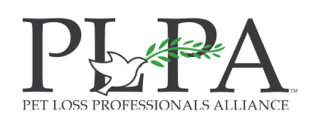 Veterinary team members who provide skilled client support often develop an extremely loving and loyal clientele. Many of your clients will think of you as a friend. This is why it is important to understand the concept of setting boundaries for support.
Veterinary team members who provide skilled client support often develop an extremely loving and loyal clientele. Many of your clients will think of you as a friend. This is why it is important to understand the concept of setting boundaries for support.
Once your clients have experienced the quality of your comfort and care, they may naturally turn to you for assistance with the other problems in their lives. This may be especially common when those problems involve a medical issue or death. For example, they may come to you with questions about an illness they are coping with, their child’s struggle to recover from a severe injury, or the death of one of their close relatives or friends. These conversations will be emotional, and it will be tempting for you to help them as much as you can.
Setting Boundaries
If you begin to feel burdened by others’ problems, gently remind yourself of the limits, or boundaries, of your client support responsibilities. Remember that you are (most likely) not a psychiatrist, psychologist, social worker, family therapist, member of the clergy, or suicide prevention counselor. Nor do you want to be! These are professional roles that require years of study and experience. You are, by choice, a veterinary medical professional and therefore required to deal only with the thoughts, feelings, behaviors, and issues associated with losing a beloved pet. While it is very appropriate for you to be sensitive and supportive, your efforts can be consistently limited to addressing the issues that arise surrounding the death of a companion animal.
If you have the time, it is always appropriate to listen to the problems of a “friend.” But, if you find yourself drawn to help a “client-friend” attempt to resolve another personal issue, remind yourself that you may not be the best-qualified person to do so. This is the time simply to listen. Then, if appropriate, make a referral to a mental health professional or local support program that can provide the specific kind of counseling your client-friend needs.
Take Care of Clients by Taking Care of Yourself
Please take care of yourself and remember that, when providing support, it is always more helpful to allow the other person to remain in control of his or her situation. Facilitate the grieving process by offering your clients guidance, structure, and honest information. Teach them about what they can expect from the normal process of grieving. Emotional support efforts are most effective when you understand that you have a responsibility to, rather than for, your clients. It may be easier for you to understand the difference and to adhere to the limits and boundaries that define basic client-support principles, as well as what is not helpful to say or do, as described in the staff handouts, Basic Principles for Providing Effective Grief Support and What NOT to Say What NOT to Do.
Keep up the good work,

Laurel Lagoni
Co-Founder
World by the Tail, Inc.





